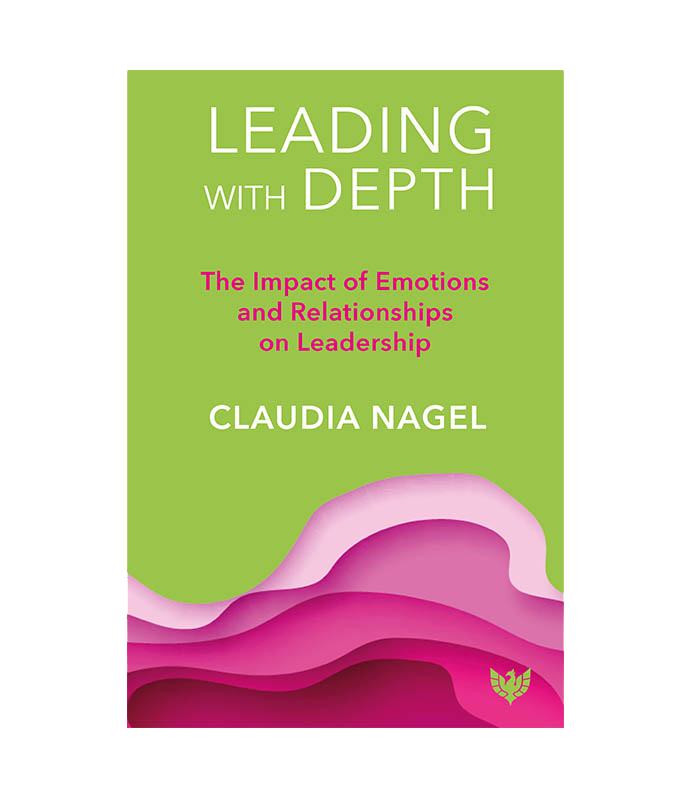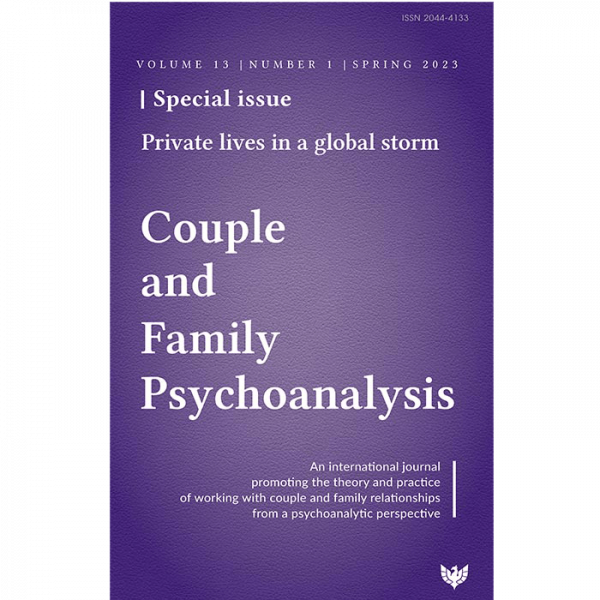Leadership goes well beyond efficient management, and the significance of emotions on the success of organisations is often underestimated. In Leading With Depth: The Impact of Emotions and Relationships on Leadership, Claudia Nagel guides us through the emotional and relational fallacies of organisational leadership from both the personal and the systemic perspective.
Nagel expertly weaves theory, including attachment, neuroscientific, psychodynamic, psychosocial, and psychoanalytic, with practical advice. She looks at the leader as an individual and leadership as a context within systems such as groups, organisations, and societies. The book is divided into two parts and contains forty figures to illustrate important aspects of leadership. The first chapter in each part is purely theoretical followed by more method-oriented and practical chapters, which are complemented by pertinent case studies from well-known experts in the field (coaches, consultants, or academics). Each chapter concludes with a brief overview of the key learnings for the reader to take away. In this way, Nagel encourages practical learning and application and engagement with the text.
Nagel’s clear language spares the reader of academic jargon and is highly readable. The book successfully bridges the gap from theoretical concepts to real-life application and will be of value to incoming and experienced leaders alike, as well as organisational consultants and executive coaches looking to inform their practice.





 Prof Dr Claudia Nagel is a consultant, coach, author and senior advisor to international organisations and their board members. She is full Professor at the VU Amsterdam University, holding a chair on change and identity. As an economist (MBA), organisational psychologist (PhD) and chartered psychoanalyst (ISAP), Claudia is an expert on strategic management, leadership, and change processes. She runs her own consulting business, Nagel & Company. Claudia is president of the International Society for the Psychoanalytic Study of Organizations (ISPSO) and top executive coach for CoachSource. She talks and publishes extensively on behavioural strategy and the psychodynamics of strategy, leadership, and change, and is the author of Psychodynamic Coaching (2020, Routledge).
Prof Dr Claudia Nagel is a consultant, coach, author and senior advisor to international organisations and their board members. She is full Professor at the VU Amsterdam University, holding a chair on change and identity. As an economist (MBA), organisational psychologist (PhD) and chartered psychoanalyst (ISAP), Claudia is an expert on strategic management, leadership, and change processes. She runs her own consulting business, Nagel & Company. Claudia is president of the International Society for the Psychoanalytic Study of Organizations (ISPSO) and top executive coach for CoachSource. She talks and publishes extensively on behavioural strategy and the psychodynamics of strategy, leadership, and change, and is the author of Psychodynamic Coaching (2020, Routledge).
Stefan Behr, CEO of J.P. Morgan SE –
‘Claudia Nagel takes you on a vivid journey into the inner world of people, companies, and how organisations really work. By exploring what drives us and examining different leadership traits, she shines a spotlight on what really happens at the heart of companies. An interesting and enlightening read that every leader should have close to hand.’
Prof Gerd Gigerenzer, Max Planck Institute for Human Development, Berlin –
‘Claudia Nagel’s inspiring book analyses leadership from a psychological perspective: leaders’ emotions, ambivalences, doubt, uncertainty, and the pressure they feel. By introducing handy analogies – such as “the leader as container”, that is, creating a trusted, safe space in which a team can grow – she invites her readers on a journey into the age of hybrid work, Zoom fatigue, love, loneliness, and work friendship. A wise and thought-provoking book.’
Dr Ulrich Hüllmann, CFO, Viessmann Group Holding –
‘I loved reading this book. It confirms what is, of course, not something new: management and leadership are much more than technical skills. But it is thrilling the way it illustrates how personal and individual behaviour influences leadership. It is striking to learn how these factors contribute to performance. It offers insights into what might trigger patterns and, consequently, allows us to derive solutions from a team and personal perspective. It’s all about people.’
Issy Drori, Emeritus Professor, VU Amsterdam –
‘This book presents a unique knowledge collection on leadership and leaders and their emotional set up. It offers theoretical perspectives and practical solutions enriched with varied case studies. Prof Nagel has produced a masterful piece of clear scholarship and practical insights in a very approachable way. I highly appreciate her excellent knowledge of how leaders today must deal with the demands from changing economics and societies.’
Dr. Robert Bente, entrepreneur and multiple supervisory board member –
‘“You believe you’re leading in a purely rational way? No, that’s impossible.” Claudia Nagel had coined this term earlier. And it’s the perfect launchpad for this book. Allow yourself the benefit of doubt behind your firm belief. Start observing your own emotions, get suspicious and curious about yourself. Look deeper, emotions are your constant companion. They affect how you arrive at decisions and how you guide and motivate the humans around you. Leadership is deeply embedded in the human factor, i.e. the subtle, yet immensely powerful, emotional interaction between people. Study and understand what’s going on in you. Reflect on your impact on the people around you and what drives them: hope as much as anxiety, conflict as much as uncertainty and change. Nagel’s book delivers on the provocation. It provides an exhaustive compendium of real-life insights and great food for thought. The set-up combines conceptual and illustrative parts with great added value from case studies. Think “Leadership with Depth”.’
James Krantz, Principal, WorkLab –
‘Prof Nagel provides a crystal-clear overview of what has been learned about leadership and about what is needed to strengthen it. Complementing her framework, the succeeding chapters each explore related issues, experiences, and dilemmas that beautifully illustrate the book’s main focus. While addressing complex issues, the writing is accessible and direct. In one stunning insight after another, this book clearly shows how effective leadership helps us transform experience into meaning, and how it supports our ability to think rather than act impulsively. It is an important advance in our understanding of how emotional life and relationships affect leaders’ success. One that I highly recommend to leaders, consultants, and academics.’
Mel Kinross, MBACP (Accred), counsellor and supervisor, BACP, Therapy Today, April 2024, 35:3 –
‘Nagel summarises theory and explains it using examples from her work. There is a sense of her voice, as she interweaves her own opinions and remarks – which I enjoyed. […] Nagel helps us understand how emotions and relationships impact a leader’s successes and failures.’
Tim Dartington, Organisational and Social Dynamics: Volume 24 Number 1 –
‘Although Nagel foregrounds the individual in the organisation, she also gives attention to the organisation in its environment. She mostly avoids the politics of consumer capitalism and the challenges to public service in the face of neoliberal individualism but she does not miss opportunities to remind leaders of the opportunities and advantages in having an experienced consultant or coach by their side. She invites questioning of Milton Friedman’s assertion that the only social responsibility of a business is making profit and invokes the authority of Immanuel Kant in saying that leaders as agents of a system are autonomous and can act individually. We get insights from her own consultancy practice, as she recognises the importance of understanding organisations as complex adaptive systems, social network systems, and ecosystems. She describes challenges to the integration of different organisational cultures in the tussle between cooperation and collaboration in what she calls hybrid organisations working for both private profit and public good, whilst ecological leadership emphasises long-term perspectives, sustainability orientation, and responsible decision-making.’
Andrea Castiello d’Antonio, Hogrefe Italy e-magazine, No. 109, March 2024 –
‘Claudia Nagel has, therefore, accomplished a meritorious work in organizing and presenting, today, a text that can be also considered symbolically representative of the point at which the psychodynamic perspective has reached in applying its own knowledge and experience in the world of work.’